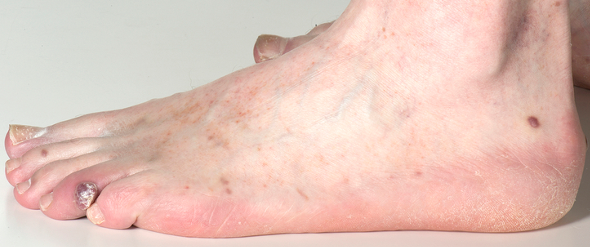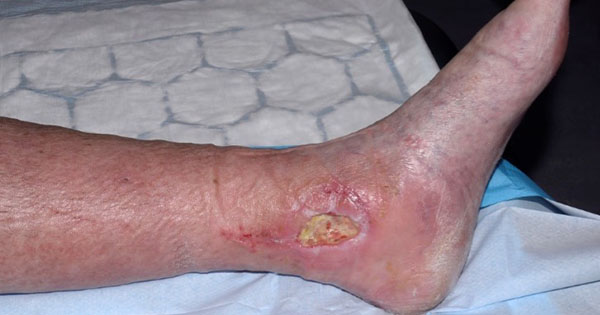August 2018, Milton Keynes, UK. A survey of more than 200 people living with chronic wounds, conducted by Mölnlycke
New research finds UK nurses carry out 180 wound dressing changes a year – on each chronic wound patient
- Chronic wounds, such as diabetic foot ulcers, pressure ulcers and venous leg ulcers, take more than 8 months to heal for the average patient and some will be affected for decades1
- Despite advancements in wound care, patients report dressings are changed on average 5 times a week1
- This poses a huge burden on UK nurses and impacts the quality of life for nearly all (90%) of patients1
August 2018, Milton Keynes, UK. A survey of more than 200 people living with chronic wounds, conducted by Mölnlycke, a provider of wound care solutions, reveals that living with an open wound for almost a year has become the ‘new normal’ in the UK.1 The situation is challenging for UK nurses and has a devastating impact on quality of life for those affected.
Over 2.8 million people in the UK are currently living with a chronic wound.2 The survey found that the average patient with a chronic wound is affected for over 8 months, with an estimated 300,000 (11%) patients going beyond the one year mark.1 As the majority (80%) of patients require dressing changes at least twice a week and over a third (35%) require daily dressing changes, it’s sadly unsurprising to discover over a third of patients reported their wound has a high impact on their quality of life.1
One in four have their dressing changed by a nurse at their local GP surgery and (4%) by a specialist nurse (such as a Tissue Viability Nurse) at a wound care clinic.1 However for many chronic wound sufferers, mobility is affected and some patients may be housebound: 20% of patients reported being dependent on nurses or healthcare assistants visiting them at home, up to 7 days a week.1
Lecturer in Community Nursing at the University of Leeds Dr Una Adderley, who leads the Legs Matter coalition (who campaign for better wound care), comments: “Community nurses, such as practice nurses and district nurses, are really under pressure when it comes to wound patients. Wound care forms a large part of the nursing caseload and it is becoming increasingly difficult for these nurses to give patients the time and care they need. In this study, patients report an average dressing time of 18 minutes, but this is rarely enough time to provide the care that is needed. When nurses have more time with each patient to give good quality assessment and appropriate care, we see better healing and improved patient quality of life.”
Living with a chronic wound has a huge impact on patients’ lives with 30% reporting feeling ‘powerless’ and nearly a quarter (23%) reporting feeling depressed.1 The burden of living with a wound affects patient’s lives on a day-to-day basis, with 18% unable to work full time and a further 15% unable to work at all. Living with a wound can lead to social isolation, with over a quarter (26%) seeing friends or family less and nearly half (48%) struggling to exercise or walk for long periods.
With everyday activities being a struggle, many patients additionally rely on pain killers (33%) or sleeping pills (10%) to ease their discomfort.1 Some patients even reported needing anti-depressants (13%) to cope.1
Anyone affected by a chronic wound and wishing to seek help should visit the Legs Matter website for more information: https://legsmatter.org/. For more information on Mölnlycke visit www.molnlycke.co.uk







